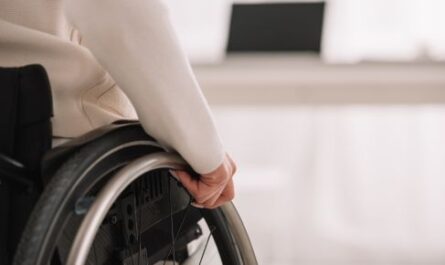
Imagine waking up after surgery or an illness, greeted not by the sterile walls of a hospital but by the comforting familiarity of your own home. For many seniors in Houston, this is not just a dream—it’s a reality made possible through senior home care services that cater specifically to their needs during recovery. As we age, our bodies require more time and support to heal, and navigating the post-operative landscape can feel daunting. That’s where non-medical care comes into play.
Home care for elders offers much more than assistance with daily activities; it provides a lifeline of emotional support and personalized attention that fosters healing in a nurturing environment. From meal preparation tailored to nutritional needs to companionship that lifts spirits, senior care at home helps ensure that recovery is not just about physical healing but also about mental well-being. If you’re looking for ways to ease the transition back into everyday life after surgery or illness, let’s explore how these invaluable services can make all the difference on your road to recovery.
Benefits of Home Care After Surgery
Home care services for seniors in Houston offer a unique blend of comfort and support that can significantly enhance recovery after surgery. One of the most compelling benefits is the personalized attention patients receive. Unlike bustling hospitals where staff may have limited time, home care allows for tailored assistance, focusing on individual needs, preferences, and the specific requirements of each recovery plan. This individualized approach fosters not just physical healing but also emotional well-being, as patients often feel more relaxed and secure in their familiar surroundings.
Furthermore, home care services can facilitate better communication between caregivers and healthcare providers. With professional caretakers well-versed in monitoring vital signs and administering medications, any concerns can be promptly reported to doctors or nurses. This proactive management minimizes risks of complications while ensuring a smoother transition from hospital to home—essentially bridging the gap between clinical settings and everyday life. Plus, engaging with loved ones during recovery can markedly elevate morale; a friendly face or a shared meal at home makes all the difference in turning challenges into moments of warmth and connection.
Personalized Care Plans for Recovery
Personalized home care plans are transforming the recovery experience for patients’ post-surgery. Unlike one-size-fits-all approaches, these tailored strategies consider a patient’s unique medical history, lifestyle preferences, and home environment. This individualized care not only enhances comfort but also significantly boosts adherence to recovery protocols. By integrating specific rehabilitation exercises, medication schedules, and nutritional needs into the plan, caregivers can foster a more efficient healing process.
Moreover, personalized plans often extend beyond physical recovery. They include emotional and social support systems that cater to the patient’s mental well-being. Involving family members or friends in this framework can create a nurturing atmosphere that encourages open communication and provides motivation during tough days. As technology advances, telehealth services further enrich these personalized care plans by facilitating regular check-ins with healthcare professionals who can adjust routines based on progress and feedback. Ultimately, investing in an individualized approach to recovery not only accelerates healing but also fosters long-term health resilience.
Assistance with Daily Living Activities
Post-surgical home care services are essential for individuals recovering from surgery, offering tailored support that goes beyond mere medical oversight. One crucial aspect of these services is assistance with daily living activities (ADLs), which can include everything from personal hygiene and dressing to meal preparation and mobility support. This personalized help not only alleviates physical challenges but also fosters a sense of independence and dignity during recovery.
Engaging with professionals trained in post-surgical care can significantly reduce the risk of complications. For instance, proper guidance on mobility can prevent falls and promote healing by encouraging safe movement around the home. Additionally, meal preparations catered to specific dietary needs ensure patients receive adequate nutrition—crucial for recovery yet often overlooked in everyday life. By focusing on both physical assistance and emotional well-being, comprehensive home care creates an environment conducive to healing, allowing individuals to regain their strength and confidence more quickly than they might alone.
Medication Management and Monitoring
Medication management and monitoring play a pivotal role in post-surgical home care, ensuring that patients not only recover effectively but also minimize the risk of complications. After surgery, the transition from hospital to home can be overwhelming, especially when juggling various medications. Each medication serves a specific purpose—whether it’s pain management, infection control, or promoting healing—and understanding their interactions is crucial. Utilizing a medication reconciliation process can mitigate errors and enhance adherence while empowering patients and caregivers to take an active role in recovery.
In these modern and advanced times, technology has become an invaluable ally in this aspect of care. Mobile apps are designed specifically for tracking medication schedules, reminding patients of dosages and timings which fosters accountability. Additionally, engaging family members or caregivers in this process can create a supportive environment where open discussion about side effects or confusion becomes instrumental in successful outcomes. By adopting these proactive measures, we not only improve patient safety but also nurture confidence during what can often be a daunting recovery phase.
Emotional Support and Companionship
Emotional support plays a crucial role in post-surgical home care, often overlooked amidst the focus on physical recovery. A compassionate presence can significantly enhance a patient’s healing experience by providing reassurance and reducing anxiety during vulnerable moments. It is not just about having someone present; it’s about fostering an environment in which patients feel heard, valued, and connected. This emotional connectivity streamlines the path to recovery by encouraging adherence to medical advice and rehabilitation protocols.
Companionship also serves as a powerful motivator for individuals facing the challenges of post-operative life. Engaging in meaningful conversations or sharing simple activities can catalyze a sense of normalcy, making daily tasks seem less daunting. Moreover, the mental stimulation provided by social interaction helps divert attention from discomfort, thereby creating an uplifting atmosphere conducive to speedy recovery. As families and caregivers recognize these psychological dimensions of health, they are better equipped to support their loved ones through this transformative period with compassion and empathy.
Mobility Aid and Physical Rehabilitation
Mobility aids play a crucial role in facilitating post-operative recovery, particularly after surgery. These devices not only enhance physical movement but also serve as a psychological boost for patients grappling with the loss of independence. As individuals navigate through their rehabilitation journeys, mobility aids like walkers, canes, and wheelchairs offer essential support while minimizing the risk of falls and injuries. Understanding how to effectively incorporate these tools into daily routines is vital; doing so accelerates recovery times and enhances overall quality of life.
In senior home care settings, personalized rehabilitation programs that integrate mobility aids can transform the healing experience. Caregivers trained in adaptive techniques ensure that seniors receive appropriate instruction on safe usage, thus empowering them to regain confidence as they recover. Additionally, technology has advanced significantly—smart transport solutions such as electric scooters or vehicle lifts are making it easier for seniors to maintain an active lifestyle post-surgery. By promoting regular activity through tailored mobility solutions, we open up new avenues for social interaction and mental well-being during the rehabilitation process.
Communication With Healthcare Providers
Effective communication with healthcare providers is pivotal for ensuring a speedy recovery, particularly after surgery. While patients often focus on their physical rehabilitation, the nuances of dialogue with medical professionals can heavily influence outcomes. Take the initiative to ask open-ended questions that clarify post-operative care instructions and potential side effects; this not only enhances your understanding but also fosters a partnership in your recovery journey.
In the realm of senior home care, intuitive communication practices become even more essential. Many seniors may face mobility or cognitive challenges that hinder their ability to articulate concerns or needs effectively. Advocating for routine check-ins and creating an environment where caregivers encourage sharing thoughts can make all the difference in managing ongoing health issues. Being proactive about communication helps identify complications early, enabling timely intervention and ultimately leading to more successful recoveries and improved quality of life for older adults navigating post-surgical transitions at home.
Enhancing Recovery Through Home Care
Home care is not just a trendy buzzword; it’s the secret sauce for recovery that many are missing! With personalized attention and a cozy environment, patients can heal faster while enjoying the comforts of their favorite couch. Plus, who wouldn’t want a skilled caregiver to whip up some chicken soup and binge-watch their favorite shows? So why not give yourself or a loved one the gift of recovery at home? After all, healing is more fun with your own couch!



